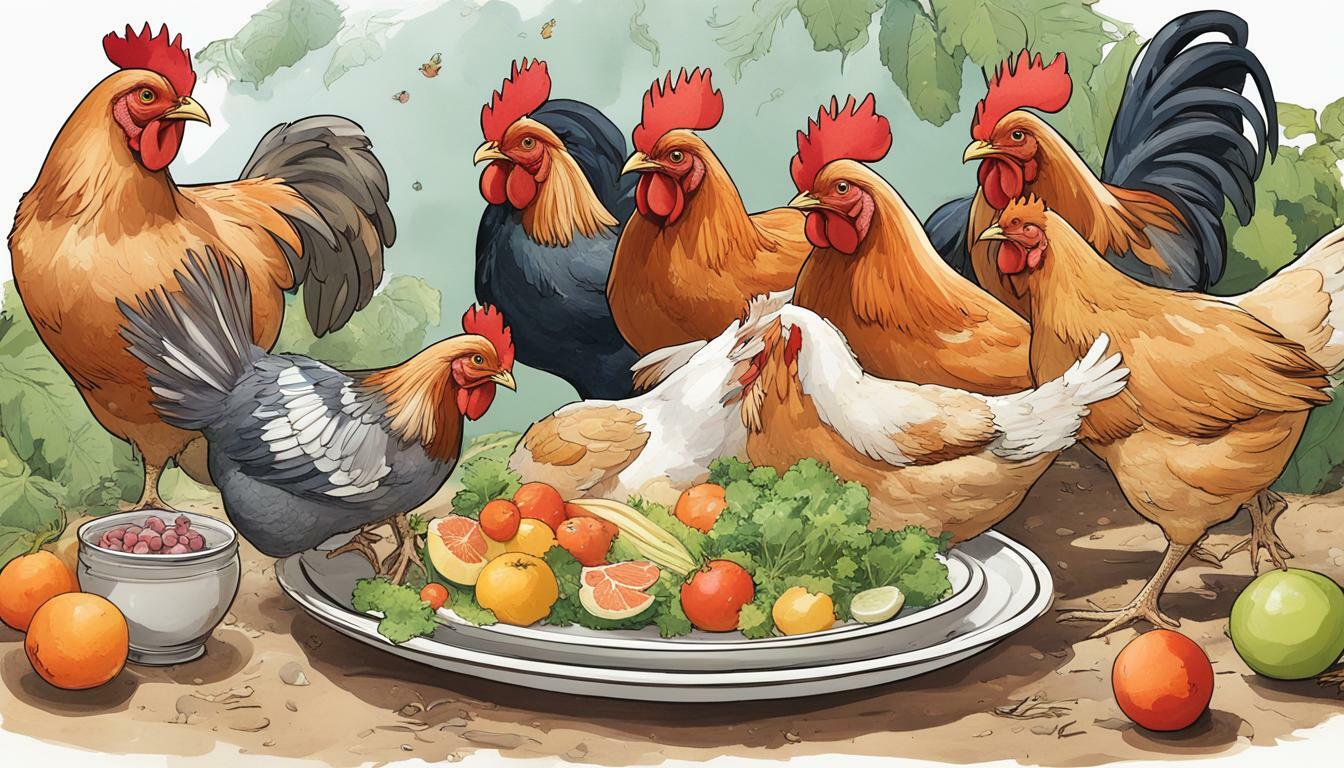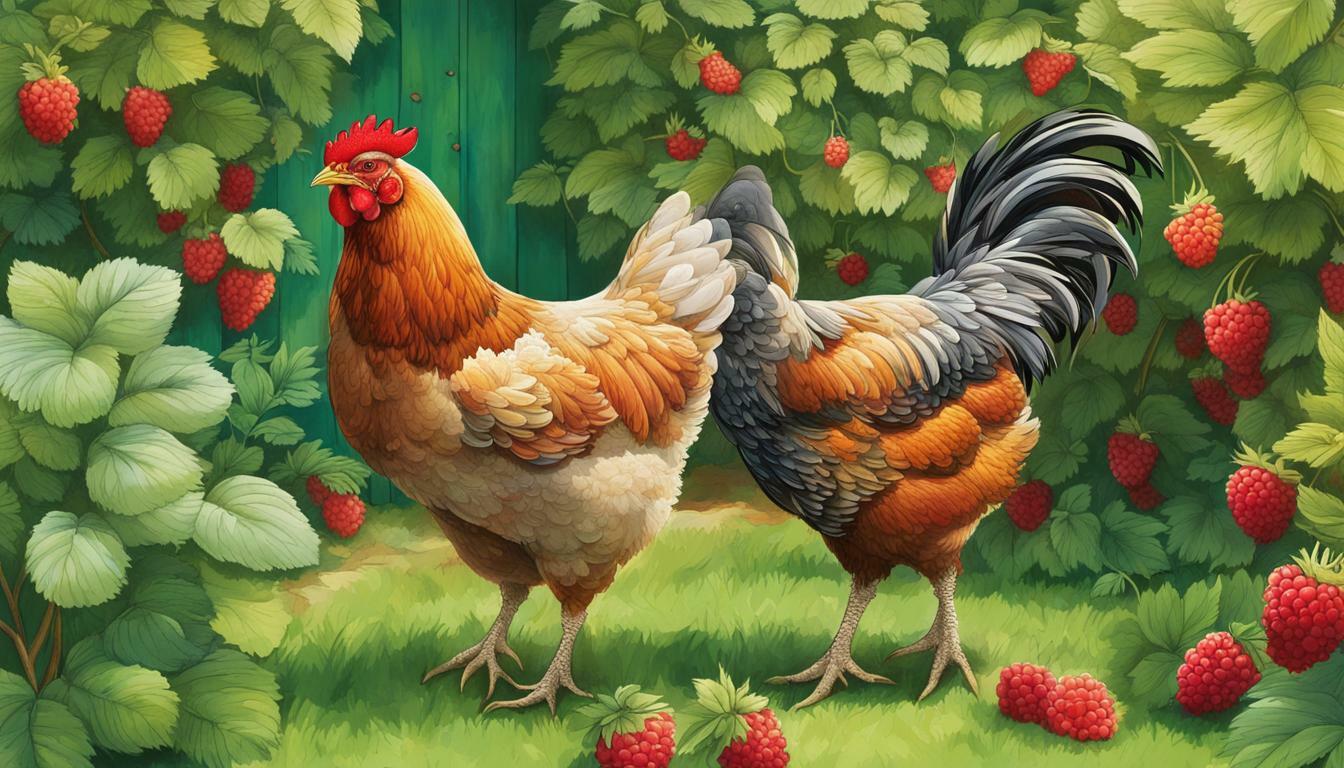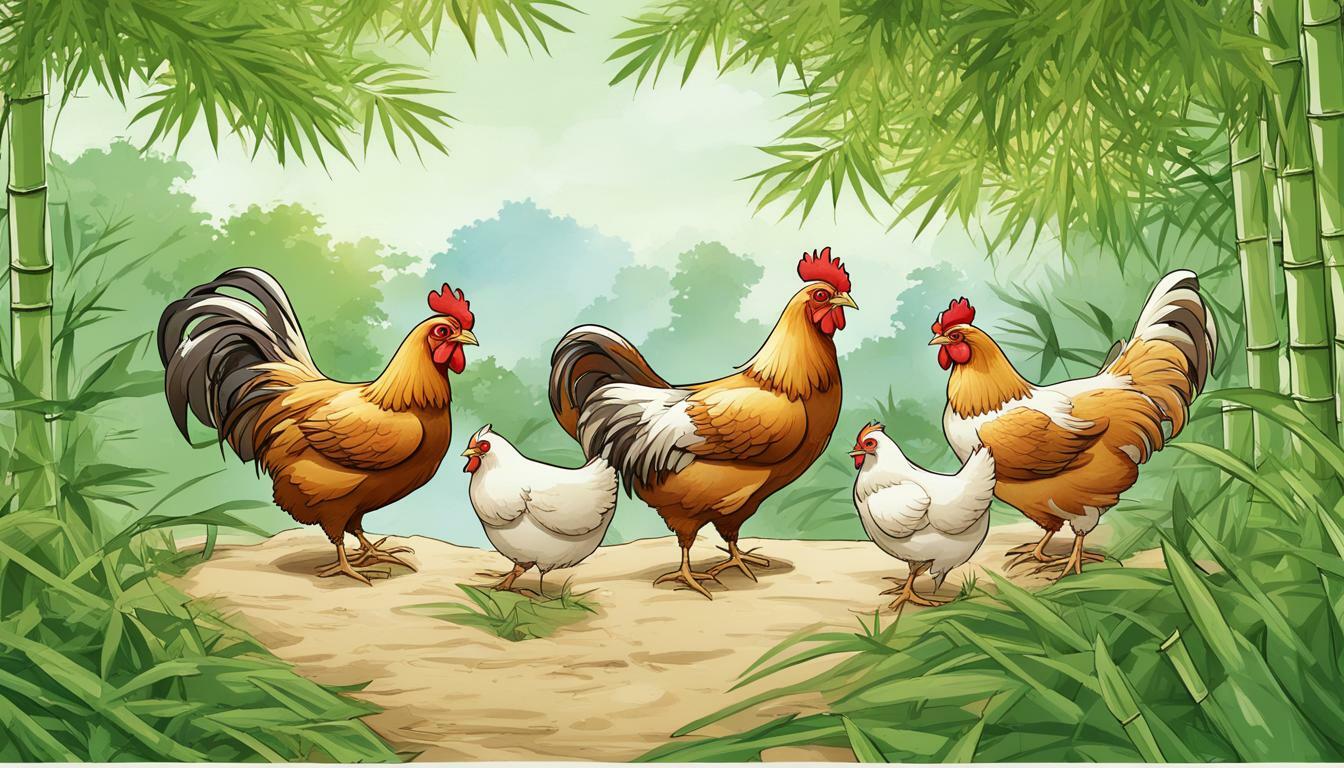Can Chickens Eat Salmon? Safe and Healthy Chicken Treats

Table of content:
- Is It OK to Feed Chickens Salmon?
- How Much Salmon Can Chickens Eat?
- Should You Cook Salmon Before Feeding It to Chickens?
- What are the Health Benefits of Salmon for Chickens?
- Is Salmon Part of a Chicken’s Natural Diet?
- Do Chickens Like the Taste of Salmon?
- Can Chickens Get Enough Omega-3s from Eating Salmon?
- What are the Risks of Feeding Salmon to Chickens?
- Can You Feed Chickens Raw Salmon Scraps and Leftovers?
- Are Canned Salmon and Smoked Salmon Safe for Chickens?
- Can You Feed Chickens Salmon Skin and Bones?
- Can You Feed Chicken Pets or Table Scraps Containing Salmon?
- Final Thoughts
Salmon can be a healthy treat for chickens in moderation. Salmon is rich in beneficial omega-3 fatty acids and proteins that can support chickens’ health. However, there are some risks to be aware of when feeding salmon. This article provides key information on feeding salmon to chickens.
Is It OK to Feed Chickens Salmon?
Salmon is safe for chickens to eat. In fact, small amounts of salmon can provide health benefits. However, there are a few things to consider:
Benefits of Salmon for Chickens
- Omega-3 fatty acids – Salmon is high in omega-3s EPA and DHA, which reduce inflammation and support immune health. Omega-3s also benefit chickens’ skin, feathers, and egg yolks.
- Protein – Salmon contains high-quality protein to support growth and feather/egg production. The amino acids, including lysine and methionine, are especially important.
- Treat – Chickens enjoy salmon as an occasional treat. It provides variety in their diet.
Potential Risks
- Bacteria – Raw salmon may contain Salmonella or other bacteria that can make chickens sick. Always cook salmon before feeding.
- Parasites – Raw wild salmon may contain parasites. Stick to cooked farmed salmon.
- Mercury – Large predatory fish like salmon can contain mercury. Feed salmon in moderation.
- Sustainability – Some salmon populations are endangered. Select sustainably sourced salmon.
How Much Salmon Can Chickens Eat?
Chickens should only eat salmon in limited quantities, about 1-2 times per week. Follow these portion guidelines:
- Adult chickens: 1-2 ounces cooked salmon per chicken
- Chicks: A few small bites of cooked salmon
Overfeeding salmon can lead to nutritional imbalances. Salmon is very rich and chickens only need a little.
Should You Cook Salmon Before Feeding It to Chickens?
Always cook salmon thoroughly before feeding it to chickens. Raw salmon carries risks:
- Bacteria – Salmonella, E. coli, and other bacteria can thrive in raw salmon. Cooking kills bacteria.
- Parasites – Raw salmon from streams or oceans can contain harmful parasites. Freezing or cooking salmon kills any parasites present.
- Bones – Raw salmon bones can be sharp and splinter. Cooked bones are soft and safe for chickens.
- Texture – Chickens may reject the slimy texture of raw salmon. Lightly cooked salmon is easier for them to eat.
Cook salmon to 165°F as measured by a food thermometer. This eliminates any food safety hazards.
What are the Health Benefits of Salmon for Chickens?
Salmon provides nutritional benefits for chickens:
- Omega-3 fatty acids – The omega-3s EPA and DHA support cardiovascular health, brain development, vision, feathers, eggs and more.
- Protein – Salmon contains all essential amino acids chickens need. Lysine and methionine are especially important.
- Vitamins and minerals – Salmon provides vitamins A, D, B12, selenium, iron and more to support overall health.
- Anti-inflammatory effects – Omega-3s reduce inflammation, benefitting chickens’ joints, gut, and immunity.
Just a small serving of salmon can boost chickens’ omega-3 intake and nutrition.
Is Salmon Part of a Chicken’s Natural Diet?
Salmon is not traditionally part of a chicken’s diet, but chickens are omnivores. In the wild, chickens eat insects and small fish. The ancestors of today’s chickens were jungle fowl that consumed a diverse diet.
While salmon itself is not native to chickens’ natural diet, it provides beneficial nutrients that chickens evolved eating, like:
- Omega-3 fatty acids from aquatic sources
- High-quality animal protein
- Vitamins and minerals from whole food sources
In moderation, salmon can provide nutrients chickens are adapted to utilize from their ancestral omnivorous diet.
Do Chickens Like the Taste of Salmon?
Chickens tend to enjoy the rich taste of salmon as an occasional treat. The fatty acids seem to make salmon more palatable compared to leaner meats.
Salmon’s strong fishy odor also stimulates chickens’ appetite and foraging instincts. Chickens have a keen sense of smell that leads them to explore and eat new foods.
The flavor and aroma of salmon is interesting and appealing to chickens. Their excited foraging behavior when offered salmon shows how much they relish this fishy delicacy.
Can Chickens Get Enough Omega-3s from Eating Salmon?
It depends on the amount fed. According to Penn State Extention, one 4 oz portion of cooked salmon provides over 1,000 mg of omega-3s. That’s far more than a chicken needs in a day.
For healthy chickens on a balanced diet, just occasional small servings of salmon can provide ample omega-3s. Chickens only need about 130-150 mg of omega-3s per day.
If chickens lack omega-3s from other sources, more frequent salmon feedings may be warranted. But for most backyard flocks, occasional salmon provides plenty of omega-3 benefits.
What are the Risks of Feeding Salmon to Chickens?
Potential risks to be aware of when feeding salmon include:
- Bacteria like Salmonella – Always cook salmon thoroughly to kill bacteria.
- Parasites – Wild salmon may contain parasites, so stick to cooked farmed salmon.
- Mercury – Limit intake of large predatory fish like salmon due to potential mercury contamination.
- Nutrient imbalance – Too much rich salmon can lead to excessive fat and omega-6 intake. Follow portion guidelines.
- Sustainability – Some salmon populations are endangered. Choose sustainably sourced salmon.
- Allergies – Chickens allergic to fish or seafood should not eat salmon.
With proper handling and portions, salmon can be fed safely. Monitor chickens after introducing any new food.
Can You Feed Chickens Raw Salmon Scraps and Leftovers?
It’s not recommended to feed chickens raw salmon scraps or leftovers, including:
- Raw salmon skins and bones
- Leftover sashimi, sushi, ceviche or tartare
- Salmon carcasses or heads
Raw salmon is likely to contain harmful bacteria like Salmonella. Parasites are also a risk with raw wild salmon.
Cook all salmon to 165°F internal temperature before feeding to chickens. Discard any raw leftovers.
If you have leftover cooked salmon, remove bones and skin before giving small portions to chickens.
Are Canned Salmon and Smoked Salmon Safe for Chickens?
Canned and smoked salmon are safer options than raw. However, some risks remain:
- Sodium – Canned and smoked salmon is high in salt. Feed sparingly.
- Bones – Remove small bones which can choke chickens.
- Food-borne illness – Smoke and brine don’t kill all bacteria. Still cook before feeding.
- Nitrates – Smoked salmon contains sodium nitrate. Limit intake.
- PCBs – Farmed salmon have more PCBs. Choose wild canned salmon.
For optimal safety and nutrition, cook fresh salmon. But cooked canned or smoked salmon are better alternatives than raw.
Can You Feed Chickens Salmon Skin and Bones?
It’s best to remove the skin and bones before feeding cooked salmon to chickens:
- Bones – Cooked salmon bones fragment easily. They can choke chickens or perforate intestines.
- Skin – The high fat content of skin can cause digestive upset.
- Texture – Skin and bones may be difficult for chickens to break down and digest.
- Safety – Bones and skin are more likely to harbor bacteria.
Without skin and bones, cooked salmon flesh is easy for chickens to digest and absorb the beneficial nutrients.
Can You Feed Chicken Pets or Table Scraps Containing Salmon?
Avoid feeding chickens any pet foods, table scraps, or prepared dishes containing salmon. These foods often contain:
- Onion, garlic, chives – Toxic to chickens
- Unsafe additives – Xylitol, caffeine, alcohol
- Rich sauces – Can upset digestion
- Raw salmon – Risk of bacteria
- Bones – Can choke or puncture
- Excess fat, salt, spices – Unhealthy
If you want to share salmon with chickens, cook a plain salmon fillet without seasonings or oil. Let it cool and cut into bite-sized pieces for chickens.
Final Thoughts
In moderation, salmon can be a beneficial treat for backyard chickens. Just be sure to follow basic precautions:
- Cook salmon thoroughly to 165°F internal temperature
- Check for bones and remove skin before feeding
- Feed only 1-2 times per week in small portions
- Select sustainably sourced salmon
- Discard any raw salmon scraps
With proper handling, salmon provides a nutritious source of omega-3 fatty acids, protein and nutrients to supplement a balanced chicken diet. Chickens relish this fishy delicacy. By following best practices, chicken keepers can safely feed salmon for health and enjoyment.
Welcome. I’m Adreena Shanum, the proud owner of this website, and I am incredibly passionate about animals, especially poultry. I founded adreenapets.com as a labor of love, stemming from my desire to share my knowledge and experiences with poultry enthusiasts worldwide.




